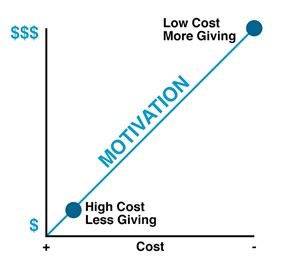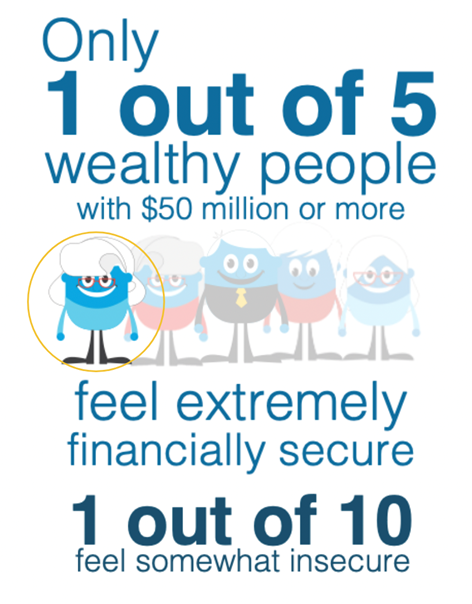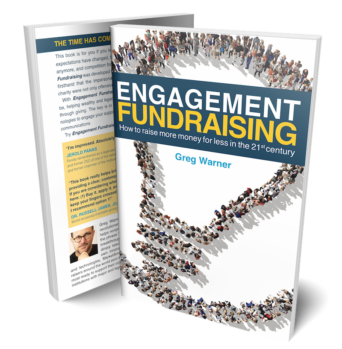We use cookies to ensure that we give you the best experience on our website. By continuing to use this site, you agree to our use of cookies in accordance with our Privacy Policy.
 Login
Login
Your Role
Challenges You Face
results
Learn
Resources
Company
Why wealthy people care about cost even when it comes to philanthropy


I’ve said it before.
Fundraising is all about making sure your supporters feel good. Of course, that’s easier said than done—especially when you consider how your wealthy donors feel about cost.
It’s an area that confuses a lot of people involved in the business of raising money because most of us are not wealthy. That makes it so we fail to understand two simple facts:
- Wealthy people care a lot about cost
- If you help them reduce cost, they’ll feel really good (and then they’ll give more)
You might counter by saying, “But wealthy people have loads of money, so they don’t care about costs… or at least they shouldn’t!”
Ha! But they do!
After all, how do you think they got wealthy in the first place (and kept their money to remain wealthy)? Many started off with much less than they have now.
That’s why billionaire Facebook CEO Mark Zuckerberg was spotted shopping at Costco with his wife Priscilla Chan last month.
That’s also why Warren Buffet lives in the same house he bought in 1958 (in Omaha, Nebraska) for $31,500. Plus, he eats cheap, buys modest cars, and enjoys modest hobbies.
Google the phrase “frugal millionaire stories” and you’ll find 2 million results.
Wealthy people aren’t stupid.
They don’t let costs slip past them. No! They pay attention to costs. They learn how to cut costs and they hire people to work for them who do both on their behalf.
According to a study of over 600 millionaires, most spend well below their means. They recognize that doing so affords them freedom and flexibility they wouldn’t otherwise experience and enjoy.
For example, Chris Reining (a retired self-made millionaire at 37) sees the accumulation of wealth as a behavior—a habit. “When people say they want to be rich, what they’re saying is they want to spend like a rich person. They’re focusing on earning a big paycheck,” Reining told Business Insider. “But that’s not the definition of being rich. The definition of being rich is having assets generating income that exceed your standard of living.”
He continued: “Someone earning $50,000 a year while they sleep from dividends and investment gains and spending $40,000 a year—they’re rich. I have friends earning half a million, and with private schools, second homes, and expensive lifestyles, they have nothing in their bank account—they’re poor. That’s why ‘rich’ has little to do with how big the paycheck is.”
This is part of your job.
Fundraisers need to first recognize and accept the fact that wealthy people are, in fact, very sensitive to cost. To your wealthy supporters, there’s no doubt that cost is a feeling.
Some costs feel large to them. Others feel small. It all depends on the circumstances (otherwise known as stories).
Therefore, to raise more money, fundraisers must include cost in the stories they help develop with their supporters. Hold on. Read that again.
You must include cost in the stories you help develop with your supporters.
I didn’t say to include cost in the stories you tell. Sure, that would be helpful. But it’s much better to help your donors develop stories about how they are finding meaning in their lives through giving while lowering cost for themselves or their heirs. The nuance is important since donors should not just be the receivers of YOUR stories. Rather, they should more often be the developers of THEIR stories, with your support, facilitation and guidance.
Ok, now that we got that straight, the stories you develop with them should either:
- Make the cost of giving feel small to them
- Help to reduce the feeling of cost as much as possible.

Research supports this.
Dr. Russell James (the foremost researcher in the field of philanthropy) backs up this assertion. In his newest book series, he says wealthy people have a lot of money because they care about having a lot of money.
He continues by saying that “cost doesn’t disappear for the wealthy; it matters more to them.”
According to Dr. James, only 1 out of 5 wealthy people with $50 million or more feel extremely financially secure and only 1 out of 10 feel somewhat secure.
So, be empathetic about that! Bury your preconceived notions about wealthy people and how they feel. Remember, wealthy people care about cost—even when it comes to philanthropy.

In my next post…
Still with me?
If you now agree that wealthy people care about cost (even when it comes to philanthropy), you’ll want to learn how you can make giving feel like it costs less. In my next blog post I’ll explain how you can do just that for your supporters, so they feel good and give more. Look out for that post in a couple of days.
Related Posts:
- Donor Psychology: Do you know what really makes your supporters feel good?
- 5 thoughts that might lead your supporters to feel donor remorse
LIKE THIS BLOG POST? SHARE IT AND/OR LEAVE YOUR COMMENTS BELOW!
Get smarter with the SmartIdeas blog
Subscribe to our blog today and get actionable fundraising ideas delivered straight to your inbox!

[…] here’s a quick recap of the previous post.In the preceding post, I explained why wealthy people care about cost (even when it comes to philanthropy). Basically, I […]